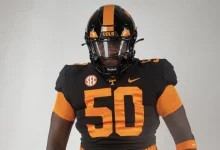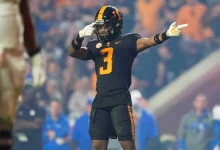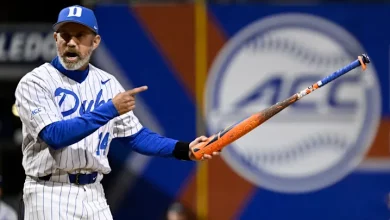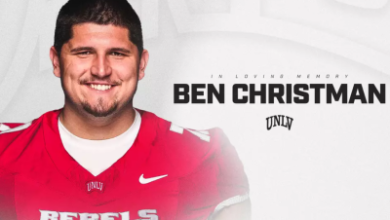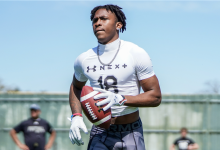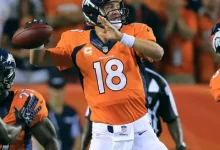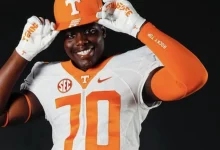Kirby Smart Advocates for Pay Equality, Says Freshmen Shouldn’t Earn More Than Seniors in NIL Deals
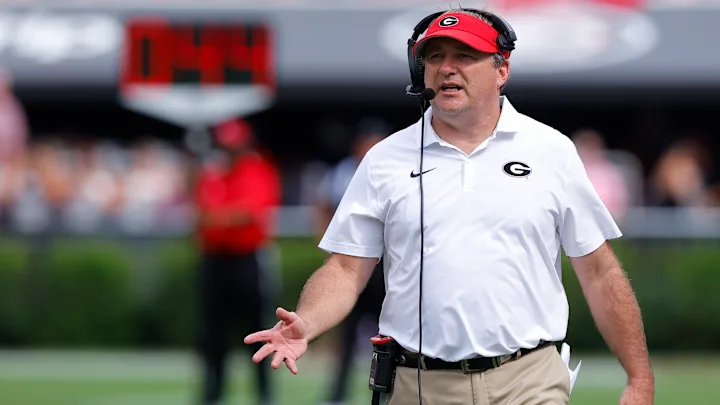
In the rapidly evolving landscape of college football, the introduction of Name, Image, and Likeness (NIL) deals has drastically altered the way players approach their college careers. While NIL has opened doors for players to profit off their personal brand, it has also raised complex questions about fairness, equity, and team dynamics. Recently, Georgia Bulldogs head coach Kirby Smart spoke out on these issues, emphasizing his belief in pay equality and expressing concern over the potential imbalance in compensation between freshmen and senior players.
Smart’s comments have sparked widespread discussion on how NIL deals could affect team chemistry, player development, and the overall culture of college athletics. With the growing influence of NIL in college football, many coaches, players, and fans have been left to grapple with these new dynamics. Kirby Smart, a long-time advocate for fair competition and teamwork, raised an important point about ensuring that the value of experience and leadership in the locker room is recognized, even in a world where financial incentives play a larger role than ever before.
The Rise of NIL in College Sports
The introduction of NIL deals in 2021 marked a watershed moment in college sports. For years, college athletes were prohibited from profiting off their names, images, or likenesses, despite the vast amounts of money generated by collegiate athletics. This restriction was lifted after a unanimous decision from the NCAA, enabling athletes to sign endorsement deals, partner with brands, and receive compensation for their personal brands, all without affecting their eligibility to play.
While NIL has opened up new financial opportunities for players, it has also created challenges for the sports world. Concerns about how the newfound money will impact team dynamics and player motivation have been widespread. With some high-profile players signing lucrative deals even before their first game, the question arises: Should a freshman, who has yet to play a single snap, be able to earn more than an experienced senior who has worked for years to reach this level?
Kirby Smart’s Perspective on Pay Equality
Kirby Smart, a former player and long-time assistant coach at Alabama before taking the helm of Georgia in 2016, has always emphasized the importance of team-first mentalities and building strong, cohesive locker rooms. His coaching philosophy has been centered around creating an environment where players work together toward a common goal — winning championships.
Given this background, Smart’s remarks on the evolving NIL landscape reflect his commitment to maintaining the integrity of the team dynamic. Smart has consistently advocated for a model where veteran players, who have put in years of hard work and development, are not overshadowed by newcomers in terms of financial compensation. In a recent interview, Smart expressed concerns that NIL could disrupt the balance of power within teams, saying that he believes it’s critical for freshmen to be treated similarly to their more experienced teammates in terms of financial rewards.
“I believe that it’s important to have a structure where a freshman comes in and doesn’t make more than a senior,” Smart stated. “These seniors have put in the work, they’ve earned their stripes, and they’ve dedicated themselves to the program. To me, part of the value of college football is the opportunity to grow, develop, and lead. When a freshman can come in and make more than someone who’s been here for years, that’s a tough pill to swallow.”
Smart’s concern revolves around the potential for freshmen to receive lucrative NIL deals without having yet proven their worth on the field. While the opportunity to earn money is certainly a positive development for college athletes, Smart fears that it may lead to a sense of entitlement among young players who haven’t yet paid their dues.
The Impact of NIL on Team Chemistry
One of the most significant concerns with NIL deals, according to Smart, is the potential for disruption in team chemistry. In a team sport like football, the ability to foster a culture of unity, trust, and collective effort is paramount. Coaches like Smart spend years cultivating this culture, and the introduction of NIL has the potential to shake it up.
In the past, players were primarily motivated by team success, with individual accolades coming as a result of strong team performance. The introduction of NIL has shifted this paradigm, as athletes now have the opportunity to focus on their personal brand and monetary gain. While NIL deals are undoubtedly empowering for athletes, they could lead to an environment where players are more focused on personal profit than team cohesion.
“The goal has always been to win as a team, not as individuals,” Smart said. “When you have guys coming into the program with huge NIL deals, that can create a divide in the locker room. Senior players may feel as if they’ve earned their status, only to have a freshman come in and receive similar or higher compensation. That kind of imbalance can hurt the unity we’ve worked so hard to build.”
For Smart, maintaining the focus on team goals and collaborative success is crucial to continuing Georgia’s dominance in the SEC and college football at large. He believes that a successful program is built on the idea that players are motivated by something larger than individual wealth — they’re motivated by the opportunity to achieve greatness as a collective unit.
Pay Disparities and the Potential for Divisiveness
The concept of pay disparity within college football is nothing new. In the past, certain star players, particularly quarterbacks, were often afforded special treatment in terms of exposure and recognition. However, the scale of NIL deals has introduced a new level of disparity, one that could have long-term consequences for college football programs.
The risk of pay disparities affecting team dynamics is especially concerning for Smart because of the immense pressure to build a championship-caliber team. Georgia’s success in recent years, including their 2021 national championship victory, has relied heavily on team-first principles and the strong leadership of experienced players. To Smart, the risk is that players might begin to focus on personal financial gain rather than the team’s success.
“Part of what makes Georgia great, and what makes college football great, is the tradition of hard work and sacrifice that we expect from our players,” Smart explained. “When you have players coming into the program with financial incentives that don’t necessarily align with their level of experience or contribution, it risks undermining that tradition.”
A Call for Team-Oriented NIL Solutions
While Kirby Smart acknowledges the value of NIL deals for players, he has called for a more structured approach to prevent disparities from emerging. One possible solution is the implementation of team-oriented NIL structures that incentivize group performance rather than individual deals. Smart has suggested that NIL deals should not only be available to individual players but should also include opportunities for team-wide partnerships, which could help foster a sense of equality and shared purpose.
Additionally, Smart has indicated that players could be encouraged to focus on building their brand through their contributions to the team rather than by virtue of their perceived marketability. This could help avoid the situation where a freshman with little experience and unproven talent becomes the highest-paid player on the team simply because of their potential appeal to outside sponsors.
“I think we’re at a point where NIL can help everyone, but we need to think about it in a way that benefits the team as a whole, not just individuals,” Smart said. “If we can find a way to make NIL deals reflect the work players put in and their role in the team’s success, I think that’ll go a long way in maintaining the culture of college football.”
As the landscape of college football continues to evolve with NIL deals, Kirby Smart’s comments highlight a larger conversation about the future of the sport. While NIL has created opportunities for college athletes to profit off their name, image, and likeness, it also presents challenges in maintaining fairness, unity, and the team-first mentality that is vital to the success of any program.
Smart’s advocacy for pay equality among players, with an emphasis on ensuring that freshmen do not earn more than seniors, underscores his commitment to preserving the core values of college football. He believes that a balance must be struck between players’ financial opportunities and the culture of teamwork and leadership that is essential for success on and off the field.
As the debate over NIL continues, Kirby Smart’s voice serves as an important reminder that college football is about more than just the money. It’s about the relationships built, the sacrifices made, and the collective effort required to achieve greatness. With the right approach to NIL, it’s possible to ensure that both players and programs can thrive while preserving the integrity of the game.

